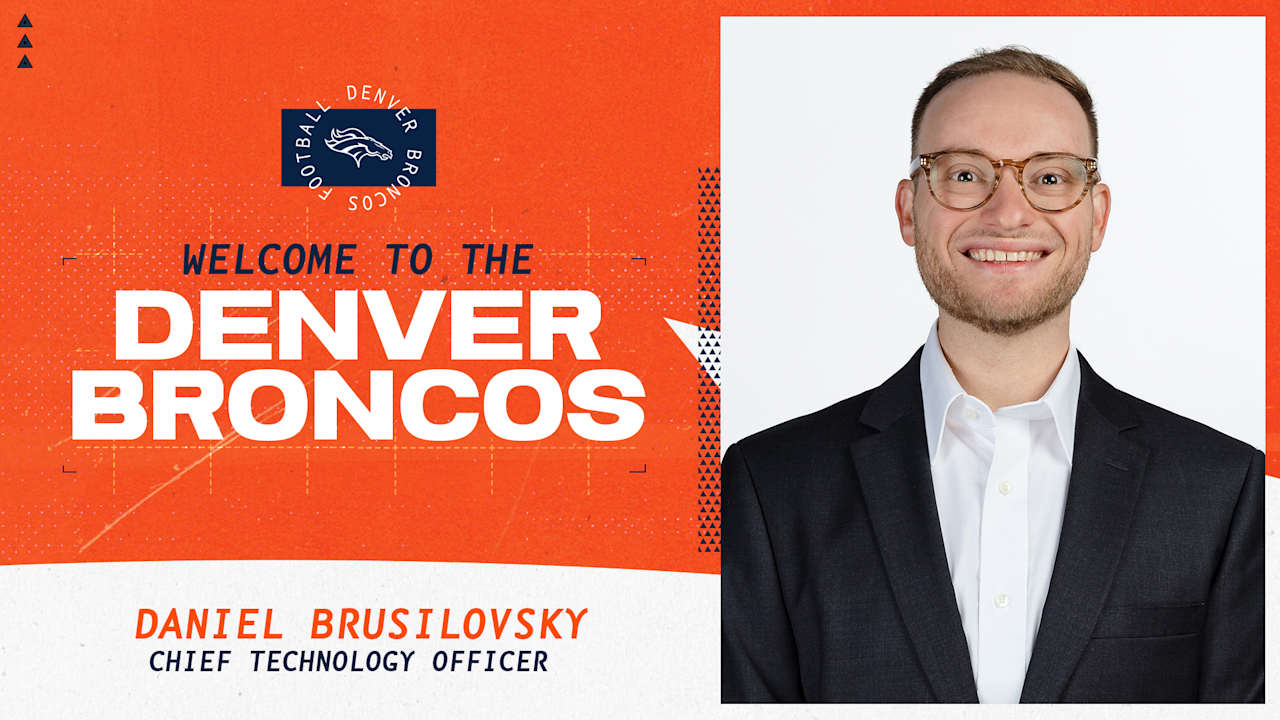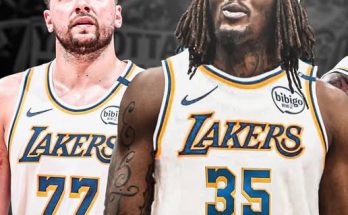The Denver Broncos have taken a bold and modern leap into the future by naming Daniel Brusilovsky as their Chief Technology Officer (CTO), a move that signals the franchise’s growing commitment to innovation, digital transformation, and fan engagement in an increasingly tech-forward NFL landscape. While front-office hires don’t always make headlines in the world of professional football, this announcement has sparked real interest—and for good reason. Brusilovsky is no ordinary executive. His track record in the tech world, combined with his creative edge and experience across sports, startups, and digital media, has positioned him as a dynamic force ready to reshape how the Broncos operate on and off the field.
Brusilovsky’s resume reads like a who’s who of Silicon Valley innovation. He previously served in leadership roles with the Golden State Warriors, where he helped transform the NBA franchise into a pioneer in sports technology and digital strategy. Under his influence, the Warriors became known not just for their dominance on the court but for their revolutionary use of fan data, mobile app integration, in-arena experience upgrades, and forward-thinking fan engagement initiatives. His tenure was marked by the fusion of world-class sports with cutting-edge tech—a blueprint he now brings to Denver.
The Broncos’ decision to elevate a CTO to such prominence marks a paradigm shift in how NFL franchises are run. Traditionally, team success has revolved around coaching hires, quarterback play, and free-agent acquisitions. But the league is evolving. Data analytics, AI, digital content distribution, real-time performance tracking, and fan experience platforms have all become essential components of a franchise’s infrastructure. With this move, the Broncos are signaling that they don’t just want to keep up—they want to lead the charge.
This strategic hire aligns with a broader wave sweeping through professional sports. Organizations are realizing that behind every touchdown, every draft pick, and every sold-out game lies a mountain of data waiting to be leveraged. And it’s not just about wins and losses. It’s about how fans interact with their team—from the stadium experience to social media, streaming content, virtual reality, and beyond. Brusilovsky’s appointment comes at a time when the NFL is investing heavily in tech infrastructure, such as Next Gen Stats, enhanced media rights distribution, and global digital fanbase expansion. The Broncos, in turn, are positioning themselves to be a leader in this digital renaissance.
The timing is no coincidence. With a new quarterback in Bo Nix, a re-energized front office, and veteran head coach Sean Payton pushing to return Denver to prominence, the franchise is entering a new chapter. By integrating a strong technological foundation at the executive level, the Broncos are ensuring that their rebuild isn’t just happening on the field—but within every layer of their organization.
Brusilovsky’s role will likely span a variety of functions, including digital fan engagement, in-stadium innovation, app development, internal analytics platforms, and possibly even leveraging emerging tech such as artificial intelligence and augmented reality to enhance both player performance and fan experience. His influence may also extend to data security, blockchain-based ticketing systems, and sustainability-driven facility upgrades. In today’s NFL, a CTO isn’t just a support role—it’s a cornerstone of a modern football operation.
This hire also sends a powerful message to the Broncos’ fanbase, one that has long prided itself on tradition and toughness, but also craves relevance and progress. By embracing innovation, the Broncos are ensuring their legacy doesn’t remain rooted solely in past Super Bowl titles. They’re pushing forward into a future where fans expect seamless digital experiences, personalized content, and 24/7 access to their favorite team. Brusilovsky is uniquely positioned to deliver just that. His ability to understand the tech-savvy expectations of younger fans while also honoring the values of a legacy-rich franchise will be a crucial balancing act—and one he seems well-equipped to handle.
Beyond the fan-facing elements, Brusilovsky’s work could also lead to major internal improvements. Imagine more efficient scouting systems powered by machine learning, real-time injury prediction models based on biometric tracking, smarter stadium operations using IoT sensors, and more targeted marketing based on fan behavior. These are not futuristic dreams—they’re increasingly standard tools in professional sports, and Brusilovsky is one of the few with hands-on experience implementing them at scale.
His addition may also attract talent from across industries. As franchises compete not just for players but for partnerships, sponsorships, and media deals, having someone like Brusilovsky on board could open doors to Silicon Valley partnerships, content collaborations with major streaming platforms, and pioneering ventures into virtual merchandise and NFTs. It’s a rare move in the NFL, but one that aligns Denver with global sports entities who have already embraced this blend of technology and tradition.
Internally, this move reflects the Broncos’ front office modernization. Since the team’s new ownership took control—led by Rob Walton and Greg Penner—there’s been a noticeable shift in vision. The Waltons bring not just wealth but corporate structure, scale, and strategic foresight. Penner, in particular, with his background in retail innovation at Walmart, likely saw in Brusilovsky a kindred spirit—a thinker and doer who understands the power of digital ecosystems. The Broncos are clearly building something deeper than just a playoff run. They’re crafting an organizational framework to be future-proof.
Of course, none of this guarantees instant success on the field. But it does lay the groundwork for a franchise that can sustain success long term. The NFL is a league of parity. Margins are razor-thin. Often, it’s not the most talented teams that win, but the best-prepared. Tech gives teams that edge—providing real-time information, optimizing decision-making, and enhancing player performance and well-being.
There will be skeptics, as there always are when traditional sports cross over with Silicon Valley culture. Some might argue that the product on the field should come first, and everything else is secondary. But the smartest teams know the two are now inseparable. The most tech-savvy franchises are often the ones that draft better, train smarter, and retain fans longer. Brusilovsky isn’t replacing the football minds—he’s empowering them.
From the outside, this hire might look like a quiet one compared to a blockbuster trade or free-agent splash. But its impact could ripple for years. Much like the Warriors transformed their brand from a struggling franchise into a global powerhouse, the Broncos now have the blueprint and the architect to do the same—only this time, through the lens of football.
As the 2025 NFL season approaches, all eyes will be on the Broncos for how they perform under Sean Payton, how Bo Nix develops under center, and how the team navigates a fiercely competitive AFC. But behind the scenes, Daniel Brusilovsky will be orchestrating a quieter revolution—one built not on X’s and O’s, but on innovation, vision, and strategic execution. It’s the kind of move that may not make Monday morning highlight reels, but could define the franchise for decades to come.
For Broncos fans, it’s a reason to be excited—not just about the next game, but about the next era. The digital age of football is here, and Denver just made one of the boldest moves yet to lead it.



